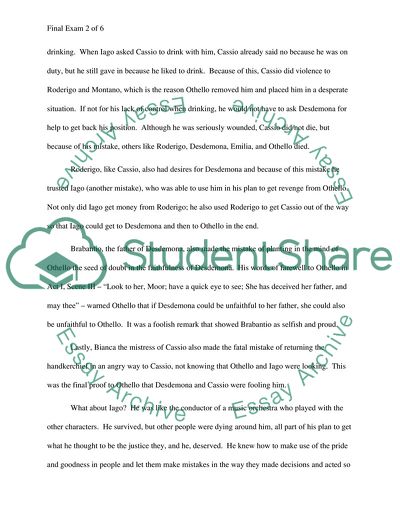The Western Heritage Literature review Example | Topics and Well Written Essays - 1750 words. https://studentshare.org/literature/1724091-westren-heritage-othelloa-man-for-all-seasons
The Western Heritage Literature Review Example | Topics and Well Written Essays - 1750 Words. https://studentshare.org/literature/1724091-westren-heritage-othelloa-man-for-all-seasons.


